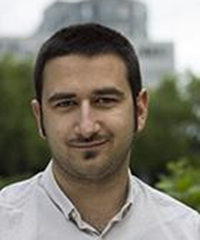Tutorials
Multipath TCP : more than yet another TCP extension
Abstract: Multipath TCP is one of the latest TCP extensions that has been specified within the IETF. Multipath TCP was initially proposed by researchers to enable TCP to use different paths for a single TCP connection. When the work started, these researchers thought that the most complex problem was to define a congestion control scheme that could operate over different paths while being fair with regular TCP. It turned out that most of the complexity of Multipath TCP was in the mechanisms that allow to cope with all the middleboxes that are used in today's Internet. Thanks to these mechanisms, Multipath TCP works correctly in today's Internet. Convinced by the benefits of Multipath TCP, Apple has been using it since 2013 for the Siri application on all iPhones. Since 2017, any iOS application can benefit from the unique capabilities of Multipath TCP. In this tutorial, we'll first explain the main design principles of Multipath TCP and how it copes with today's Internet. Then we'll analyse the different use cases where Multipath TCP has already been deployed and discuss other environments where Multipath TCP could provide huge benefits.

Olivier Bonaventure ( UCL, Belgium)
Olivier Bonaventure is Professor at UCL in Louvain-la-Neuve, Belgium where he leads the IP Networking Lab. Together with his students, he has contributed to the design and implementation of various Internet protocols (BGP, LISP, Multipath TCP, IPv6 Segment Routing, Multipath QUIC, ...). This research received various best paper awards. Olivier Bonaventure is the current Editor of SIGCOMM's Computer Communication Review where he encourages the publication of reproducible research.
Federation, programmability and security in future NFV/SDN infrastructures
Abstract: The tutorial will give a practical view of how NFV/SDN technologies can be used in order to build a programmable platform and how this platform can be used in order to support the programmability of networked services. During the tutorial an in-depth description of the platform software and how to use the middleware will be provided.
This topic is important because these technologies will be fundamental for the evolution towards programmable networking platform with particular reference to 5G and cloud computing.
Participants will learn:

Roberto Minerva ( EIT DIgital, Italy)
Roberto Minerva holds a Ph.D in Computer Science and Telecommunications from Telecom Sud Paris, France, and a Master Degree in Computer Science from Bari University, Italy. He was the Chairman of the IEEE IoT Initiative, an effort to nurture a technical community and to foster research in IoT. Roberto has been for several years in TIMLab, involved in activities on SDN/NFV, 5G, Big Data, architectures for IoT. Now he is a research engineer in Paris Sud Telecom and the Chief Technologist in Bitify.it, a startup aiming to drive the digitalization of businesses in several industries. He is authors of several papers published in international conferences, books and magazines. He has been an adjunct professor for three years at the Turin’s Polytechnic teaching a course on Mobile Services. He has given several invited speeches in Conferences and he held several classes at universities and Conferences
Some parts of the tutorial will be presented by :

Giuseppe Carella ( TUB, Germany)
Giuseppe Carella is a senior researcher at the computer sciences and electrical engineering faculty of Technical University of Berlin, Institute for Telecommunication Systems. He received his M.Sc. in Engineering of Computer Science from the Alma Mater Studiorum University of Bologna in 2011. During his research work he focused on finding mechanisms and solutions for adopting Cloud Computing technologies in Next Generation Networks. In 2012, he realized one of the first proof of concepts for elastically scaling virtualized network functions. Since 2015 he leads the Open Baton open source initiative, and he is responsible for several European and Industrial project collaborations.

Simone Pizzimenti ( Reply Communication Valley, Italy)
Simone Pizzimenti He is an IT Security Consultant within Communication Valley Reply. He holds a Computer Science Master degree from the Milan University (summa cum Laude). He is currently working on the SoftFIRE project on the Security as a Service concept, aiming at integrating security virtualized features within a ETSI MANO architecture.